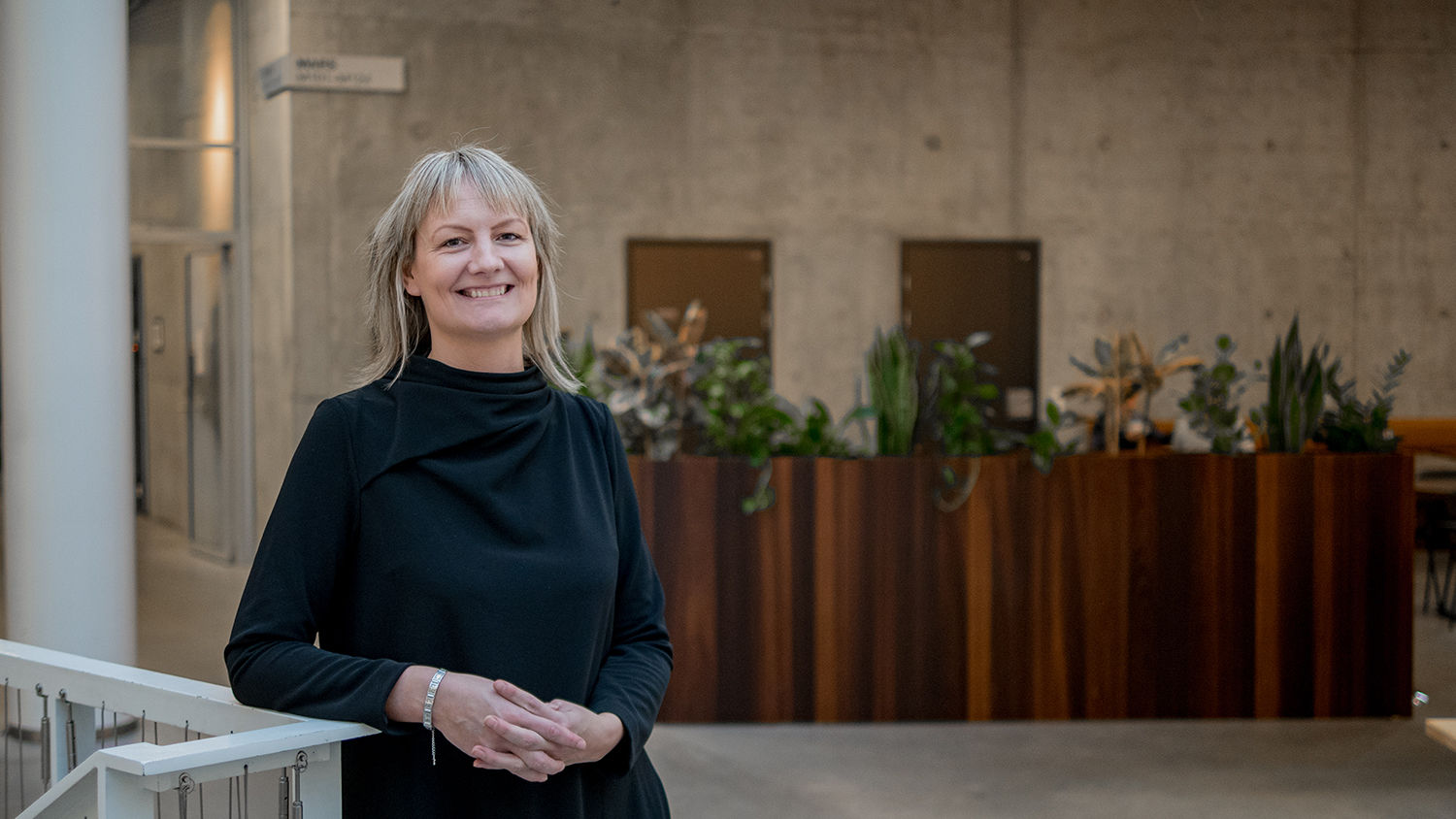"This opens up a window for Icelandic and international sleep researchers"
Erna Sif Arnardóttir is a Research Specialist at RU´s Department of Engineering. She, along with her research team, received funding recently from the Icelandic Centre for Research to establish a new facility within Reykjavik University for high-impact sleep and circadian rhythm research. An accessible facility for sleep and circadian research is currently missing in Iceland.
 Erna´s goal is to set up an open national facility for all interested researchers in Iceland. “The Sleep Institute” will be hosted under the Icelandic Centre for Neurophysiology within RU and will enable a wide array of research of massive impact. Along with the Department of Engineering, the Departments of Psychology, Computer Science and Sport Science will use the infrastructure. Furthermore, other primary users will be the University of Iceland, the Icelandic Heart Association, Landspitali - University Hospital and “Better Sleep” which specializes in online cognitive behavioural treatment for insomnia. This will be the first research facility of its kind in Iceland.
Erna´s goal is to set up an open national facility for all interested researchers in Iceland. “The Sleep Institute” will be hosted under the Icelandic Centre for Neurophysiology within RU and will enable a wide array of research of massive impact. Along with the Department of Engineering, the Departments of Psychology, Computer Science and Sport Science will use the infrastructure. Furthermore, other primary users will be the University of Iceland, the Icelandic Heart Association, Landspitali - University Hospital and “Better Sleep” which specializes in online cognitive behavioural treatment for insomnia. This will be the first research facility of its kind in Iceland.
"In the near future, a free, online Icelandic sleep and physiological de-identified database will be established, where researchers from around the world, can request data access," says Erna.
Important to understand
"The new equipment will enable us to understand better the relationship between the brain and the body, both during wake and sleep. Furthermore, aforementioned projects help us understanding, often not so obvious, the clear-cut between the healthy and diseased state of the human body, mind and brain. Moving into the fourth industrial revolution, this will be an important scientific contribution to the Icelandic society, as it is well known that sleep disturbances and sleep disorders are very common and an important adverse health risk."
The Icelandic advantage
She says this will open up a window of possibilities for all Icelandic researchers seeking to study human sleep and circadian rhythm in relation to the unique Icelandic environment: Arctic latitude with highly variable sun exposure levels, relatively isolated population with high willingness to participate in research and longitudinal follow-up, the quality of electronic health records and synergy by adding state-of-the art sleep and circadian rhythm measurements to current basic and clinical research.
"The main advantage will be linking the collected objective sleep data acquired from high density-EEG, polysomnograpy, circadian stimulating light glasses and actigraphy, to subjective assessments/questionnaires and daytime functioning, establishing a consistency of that data, and using machine learning methods for pattern recognition."
The facility will have a polysomnography (PSG) system to measure sleep stages, periodic limb movements (PLM), bruxism or additional EMG, breathing, activity, snoring, and oxygen saturation. Also an actigraph for measuring circadian rhythm activity, physical activity and sleep length/quality for longer periods, and light glasses which mimic sunlight. All the systems are portable and can be moved from one laboratory to another if needed.

